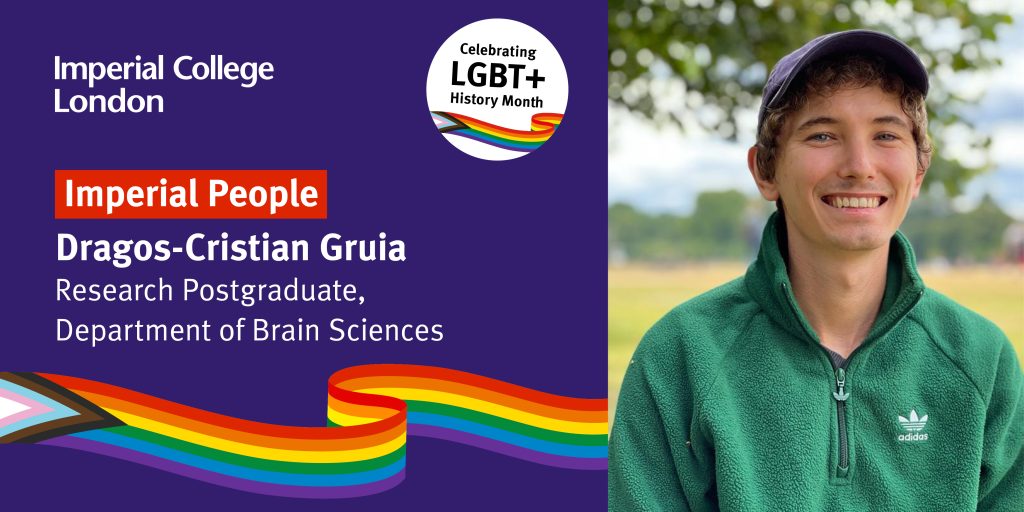
“I’m lucky to say I’m part of a very supportive lab, where I feel completely at ease being myself.”
I joined Imperial in 2019 to pursue a Master’s in Neuroscience. I got the chance to explore the brain and its intricacies in much depth, and as a result, fell completely in love with the field. I was then lucky to get a full-time position in the UK Dementia Research Institute at Imperial, looking at ways in which brain imaging and digital monitoring can be used to improve the quality of life for patients with Alzheimer’s Disease. One aspect that really piqued my interest was how technology can be used to improve patients’ lives in a meaningful manner. Patients sometimes do things that healthy adults would never do, or react to technology in ways one wouldn’t expect.
After a year, I started my PhD, developing technology that monitors the recovery of stroke survivors through computerised tests. The tricky thing about stroke is that no one can reliably predict whether a person will recover well or deteriorate after having it. So having a system that picks up signs of deterioration could help a lot of people. I’m still relatively early on in the project, but my hope is that this technology will be used in the NHS to improve the quality of care that stroke survivors receive.
Aside from my research, I am also quite heavily involved in the Brain Sciences’ LGBTQ+ Network. The committee is quite young, as we only officially launched last year, but we have been very busy organising our first events! A lot of the things that I want to do for the network are things that I wish were there when I first joined the department as an MSc student. Back then, I saw my sexuality as something that might stand in the way of finding a job or a lab for my PhD, so I often felt like the safest option was to hide that aspect from others. Now, a few years later, I am very lucky to say I am part of a very supportive and diverse lab, where I am appreciated for my work and feel completely at ease being myself.
My hope is that I can make the department an even more inclusive place for newcomers, while also making those already here feel more at ease being themselves. This is how I came up with the LGBTQ+ Brains initiative! The idea is to showcase the work of queer scientists, along with their journey into research, via a series of interviews. I thought this initiative would improve the visibility of queer scientists, showing they are welcome and appreciated as much as any other scientist. It would also be a great way to create role models in the department for more junior students/researchers. Back when I was an MSc student, I did not really know any other queer people, so an initiative like this would have been fantastic!
My hope is that we can extend our work, and create more joint events with other departments so that these initiatives can reach more students. It would be great if the work we do also encourages other departments to start their own LGBTQ+ network. That would go a long way to make queer people feel welcome and safe to be who they are.